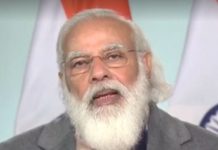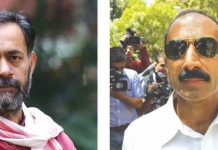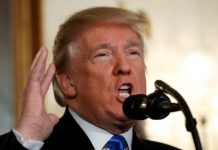
In his Independence Day speech last year, Prime Minister Narendra Modi said that “if 125 crore people work together, India will move 125 crore steps forward”. Sadly, in the first year of the NDA-2 regime, when his (Modi) cabinet colleagues walked together, they stamped on each other’s feet, and got entangled in inconsistent decisions. On several economic issues, they took giant leaps forward, hopped backwards several times and settled for solutions that were somewhere in between.
Thus, when it came to foreign direct investment (FDI) in organised retail, the official policy was to allow foreign firms, but Finance Minister Arun Jaitley publicly claimed that his party was against it. Most ministers now claim that they cannot lay down the red carpet for investors. They can only act as facilitators and show their genuineness, as most of the clearances are given by the states. Instead of getting the black money stashed abroad by Indians, the government enacted a stringent law that allowed the offenders to voluntarily declare their foreign assets.
What was worse was the stance on issues such as corruption and retrospective taxes. Jaitley claimed that this regime was against the latter; the Income Tax department under his ministry promptly sent notices to foreign institutional investors (FIIS) that demanded taxes for the past six years. Through his campaign, Modi said that he would eradicate corruption. His mantra: “Na khaunga, na khane doonga (I won’t eat, or take bribes, nor will I allow others to eat).” Now, his loyalists feel that the anti-corruption moves will impede growth and development.
All these decisions and ideas went haywire not because of a lack of vision; the reason was the deficiency in understanding the ground realities. The right intent was there among the ministers; however, crucial information was left out, either deliberately or unknowingly, while policies were formulated. As a senior bjp politician says, “Our government realised that there was a vast gap in saying things while you are in the opposition, and acting on them when you are in power.”
TO BE HONEST OR NOT TO BE
No one denies that corruption in high places — at the level of senior bureaucrats and ministers — has come down dramatically. The bjp mps are scared to go to their constituencies because they have been unable to ask for favours for their supporters from the various ministries and government agencies. Since the Prime Minister’s Office (pmo) has its fingers in every pie, or eyes on every file, there is little room for unfair wriggle.
Until yesterday, Modi loyalists proudly claimed that the end of corruption would spur growth and development, and allow all the sections of the society to prosper. It could make India the fastest growing economy in the world. Double digit growth rates would become a reality.
Today, they have changed their tunes. For example, a recent report by analyst firm Ambit said that the regime’s bid to end crony capitalism has scared off private investors.
The Ambit report said that businessmen are not in a rush to invest, and some have decided to “consciously hold back CAPEX (capital expenditure) to create an economic slowdown”, which will force the government to go slow on anti-corruption initiatives. The crackdown on the chiefs of public sector units and government contractors will lower public investments. “Sources close to the pm repeatedly stress that he has got multi -decadal ambitions and will not be panicked into generating short-term results (like high growth) which can compromise his long term goals,” the Ambit report added further. Thus, the moves against economic culprits will slow down overall growth.
BLACK REMAINS GREY
In his second Budget speech (February 2015), Jaitley said that his ministry had made breakthroughs in getting black money that is stashed abroad.
One, the Swiss authorities had agreed to share information about illegal accounts in their banks with India. Two, investigations resulted in the “detection of substantial amounts of unreported income”. Three, there was an attempt to seamlessly integrate data about tainted foreign assets to make enforcement more effective.
But in the same breath and speech, Jaitley accepted that there were “limitations under existing legislation” to get the money back. He introduced a new law, The Black Money (Undisclosed Foreign Income and Assets) and Imposition of Tax Act, to tackle the issue. Experts feel that the need for a new law hints at a feeling within the regime that it will not find it easy to trace and bring back illegal foreign assets, or it will take much longer than expected.













